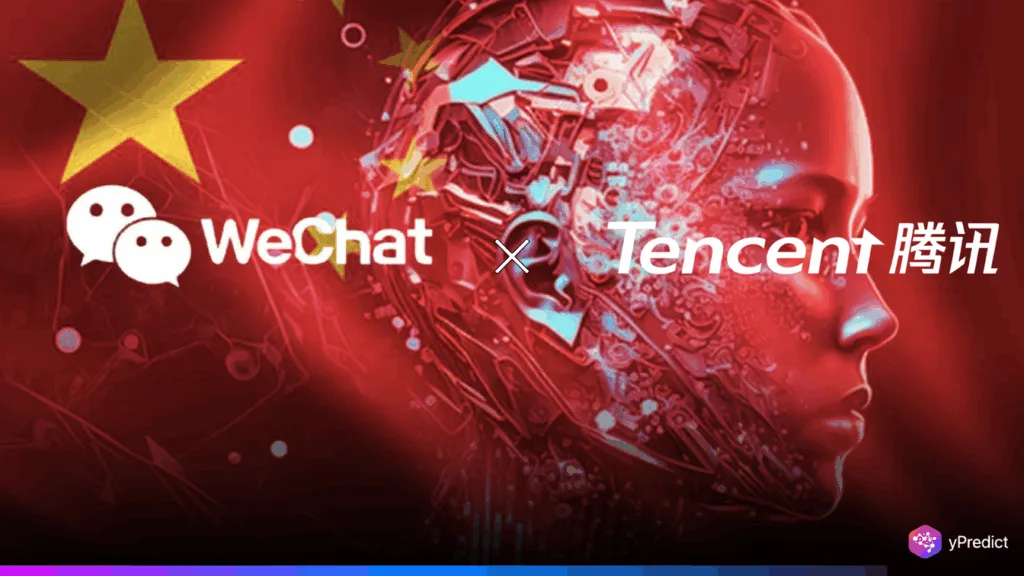
As China’s artificial intelligence sector picks up steam, Tencent has placed a bold bet on the WeChat super-app. This move could potentially help Tencent secure a leading position in the country’s AI race. The WeChat app has 1.4 billion monthly active users, which makes it the largest messaging platform in China. However, WeChat is called a super-app for a reason. It is an ecosystem that includes payments, social media, e-commerce, gaming, and a vast array of “Mini Programs”. This multi-utility nature makes it a vital part of daily life in the country..
WeChat AI: Tencent’s Latest AI Development
Tencent’s latest interest in WeChat is changing how the AI game works in China. The company plans to integrate advanced AI features directly into the WeChat app. This development will put the app miles ahead of rivals like Baidu and Alibaba. Discussing these updates during a recent earnings call, Tencent President Martin Lau said, “Within the Weixin ecosystem, we have the chance to develop a truly unique agentic AI that interacts with the specific elements of the Weixin environment”.
Many tech giants are racing to build “agentic AI”, AI that can perform tasks on behalf of users, such as booking restaurants or managing schedules. Addressing that, Lau acknowledged that Tencent’s general agentic AI, powered by its Yuanbao chatbot and the DeepSeek model, is “not much different” from those offered by competitors. However, he emphasized that WeChat AI, deeply integrated into the app’s unique features, could offer something no other platform can.
Seamless AI Integration for Everyday Life
Tencent’s approach is already visible in the rollout of several WeChat AI features. The company has launched an AI-powered search tool, leveraging the DeepSeek-R1 model. This tool is designed to enhance user experience by understanding complex queries and delivering precise results. This AI search pulls from public WeChat accounts and online content, ensuring privacy by not accessing private chats or posts.
In April, Tencent introduced the Yuanbao AI “friend” feature. This feature allows users to add the AI as a WeChat contact and interact with it directly in chat windows. Yuanbao can summarize articles, analyze images, process documents, and even participate in group chats-making AI assistance as natural as chatting with a friend.
The integration of WeChat AI extends into enterprise solutions as well. Enterprise WeChat now features “Smart Robots” and “Smart Spreadsheets,” automating customer follow-ups and internal collaboration for over 12 million businesses. These tools, powered by DeepSeek, aim to boost productivity and streamline operations across sectors.
Tencent to Benefit from Platform Advantage in China’s AI Race
Tencent’s bet on WeChat AI is as much about scale as it is about innovation. By embedding AI into an app already used by nearly every Chinese internet user, Tencent ensures rapid adoption and continuous data feedback, giving it a critical edge in China’s AI race. Lau further noted, “This actually encompasses a wide range of information along with transactional and operational capabilities across numerous application sectors. This will be exceptionally distinctive compared to other, more generic agentic AIs, making it a significantly differentiated product for us”.
Meanwhile, industry experts say Tencent’s willingness to integrate external models will be an added benefit. The company has integrated AI models like DeepSeek, rather than relying solely on its own product. This signals a pragmatic shift in their strategy, one that prioritizes user experience and speed over proprietary development. This collaborative approach is already prompting rivals to accelerate their own AI integrations.
What Lies Ahead for User-Centric AI Programs
As China’s tech giants pour billions into AI development, Tencent’s WeChat AI is emerging as a powerful, user-centric solution, which sets it apart from the competitors. By utilizing its vast ecosystem and embracing both in-house and external AI models, Tencent is poised to shape how 1.4 billion people interact with artificial intelligence in their daily lives, potentially redefining the rules of China’s AI race. Given the recent international trade tensions, such advancements in the AI sector could redefine China’s financial landscape as well.






